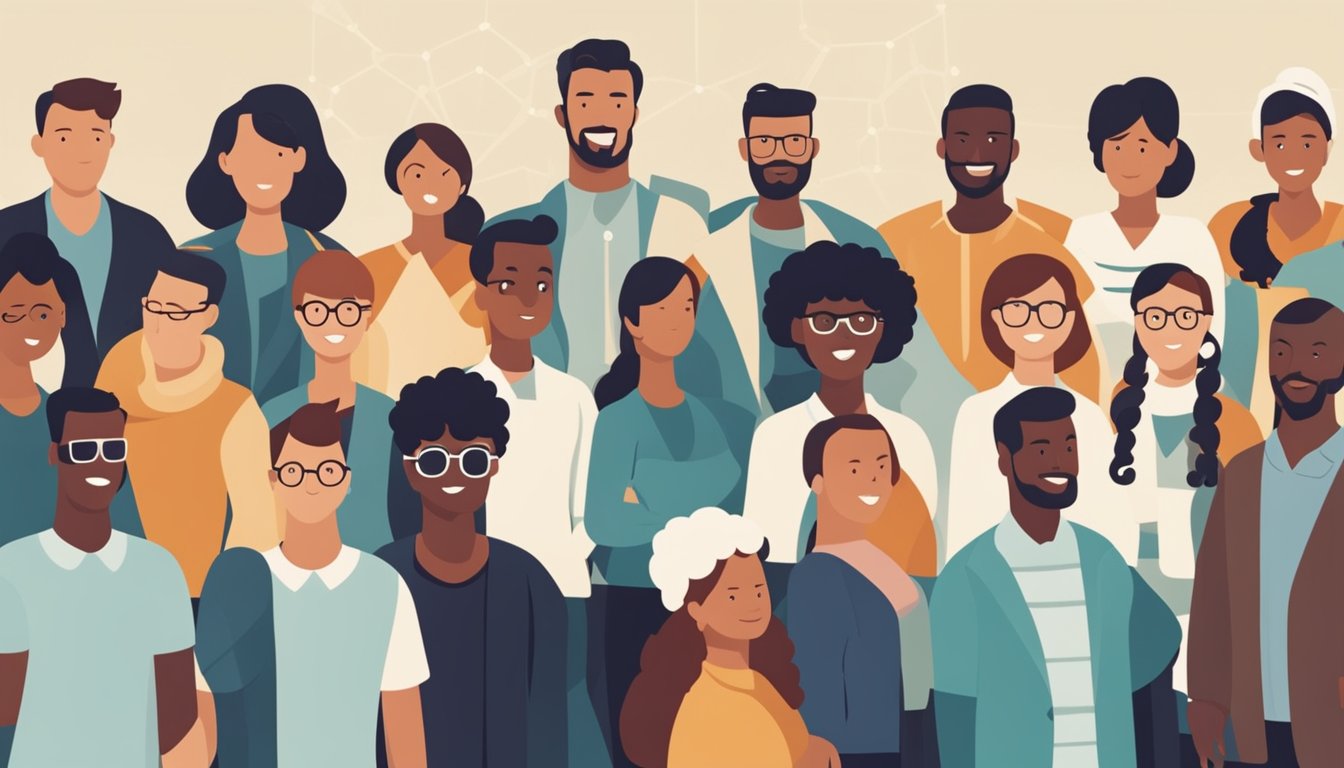Late updated: 18 Oct 2024 08:10
Written by: Ella Thompson
Fostering Healthy Relationships Post-Addiction Recovery: Essential Strategies and Insights
The journey of recovery extends beyond overcoming addiction; it involves nurturing relationships that might have been strained in the process. As we navigate this path, our focus is on rebuilding and fostering healthy relationships that contribute positively to our ongoing recovery. Creating and maintaining supportive connections can significantly enhance our well-being and provide a stable foundation for long-term recovery.

Post-addiction recovery is a time to reevaluate the impact of our relationships on our lives. By prioritising open communication and trust, we can repair bonds that may have weakened under the stress of addiction. Establishing a network of encouraging and understanding individuals is essential to sustaining recovery and preventing relapse.
By committing to self-awareness and reciprocity, we enrich our ability to form authentic connections that support both our personal growth and our loved ones. As we explore these dynamics, the journey offers both challenges and profound rewards, highlighting the transformative power of healthy relationships in recovery.
Key Takeaways
- Building supportive relationships enhances recovery.
- Communication and trust repair strained bonds.
- Mutual growth sustains long-term recovery.
Foundational Aspects of Post-Addiction Recovery
Navigating post-addiction recovery involves rebuilding relationships that were strained or broken. We explore how understanding addiction, therapy, and support systems are vital to this renewal.
Understanding Addiction and its Impact on Relationships
Addiction profoundly affects relationships, often leading to broken trust and emotional distance. As individuals focus on recovery, recognising the extent of this impact is crucial. Addiction alters behaviours and priorities, which can erode the foundations of trust and mutual respect in personal relationships.
Rebuilding these foundations often requires transparent communication and shared experiences. By acknowledging past behaviours without judgment, both recovering individuals and their loved ones can foster an environment conducive to healing. An informed understanding of addiction’s ramifications is key to relationship restoration.
The Role of Therapy in Healing
Therapy is indispensable in the healing process, offering tools and strategies to mend damaged relationships. Professional guidance helps individuals navigate emotional complexities, fostering healthier interpersonal dynamics. Cognitive-behavioural therapy, for instance, addresses negative thought patterns that might have taken root during addiction.
Family therapy is another essential aspect, enabling open dialogue and promoting reconciliation. This therapeutic approach encourages family members to express concerns and support one another. As therapy progresses, it helps all parties involved to redefine their roles and set boundaries that facilitate mutual healing and understanding.
Embracing Support Systems
Support systems play a pivotal role in maintaining sobriety and nurturing healthy relationships. Connecting with others who understand the journey can provide invaluable encouragement. Support groups, such as Alcoholics Anonymous or Narcotics Anonymous, offer a community of individuals who share similar experiences and challenges.
These groups often provide both structured support and informal community, assisting members in maintaining long-term recovery. Engaging with these networks bolsters a sense of belonging and accountability. Additionally, seeking support from trusted friends and family members can enhance resilience and reinforce relationship bonds, ultimately strengthening the recovery process.
Building and Maintaining Healthy Relationships

Building and maintaining healthy relationships is crucial in post-addiction recovery. Effective communication, boundary setting, and personal growth play key roles in establishing trust and emotional connections, ultimately promoting stability and emotional well-being.
Effective Communication for Rebuilding Trust
Effective communication is essential for rebuilding trust in relationships after addiction recovery. We focus on open and honest dialogues, where empathy and understanding play critical roles. Consistent and transparent communication helps repair damaged ties.
Actively listening and validating each other's feelings can strengthen our emotional intimacy. By being accountable for our actions, we signal our commitment to change, encouraging mutual respect. Practising these skills fosters a supportive environment, which is vital for maintaining a healthy relationship. The key is to communicate consistently and avoid misunderstandings that can disrupt the healing journey.
Setting Boundaries to Foster Emotional Connections
Setting boundaries is vital in fostering authentic connections and emotional intimacy. Healthy boundaries safeguard our emotional well-being and help us establish trust. By clearly delineating our needs and limits, we build a framework for mutual respect.
Respecting each other's personal space and choices prevents dependency and promotes autonomy. This practice also mitigates family dynamics' stressors, ensuring a balanced relationship dynamic. With clear boundaries, we bolster self-esteem, allowing us to provide support and understanding, which is crucial for relapse prevention. Open dialogue about boundaries can pave the way for a relationship built on trust and empathy.
Personal Growth and Self-Care in Relationship Recovery
Personal growth and self-care play pivotal roles in relationship recovery. Engaging in self-reflection, we enhance our self-awareness, promoting personal growth. Prioritising our emotional and physical care boosts our self-esteem, allowing us to contribute positively to our relationships.
Practising self-care helps maintain emotional stability and supports our motivation to foster healthy connections. By addressing our needs, we enhance our ability to interact authentically, strengthening our support systems. This approach ensures that we nurture both our well-being and the health of our relationships. Consistently engaging in self-care and personal improvement is integral in cementing stable, fulfilling relationships post-recovery.
Frequently Asked Questions

Navigating relationships post-addiction recovery involves understanding new dynamics and fostering an environment that promotes healing and growth. We explore how effective communication, healthy boundaries, and mutual support can contribute to successful relationship management during this critical phase.
How can one maintain healthy interpersonal relationships during addiction recovery?
During recovery, focusing on open and honest communication is essential. Engagement in regular, respectful conversations helps build trust and understanding. Prioritising self-care also plays a crucial role in maintaining these relationships, as it enables individuals to better support themselves and others emotionally and physically.
Is there an improvement in relationships post-rehabilitation?
Many individuals experience strengthened relationships post-rehabilitation, as recovery often brings a renewed focus on connection and healing. Rehabilitation provides tools to improve self-awareness and empathy, allowing for stronger bonds. Improved communication and the development of healthier habits can markedly enhance relationship quality.
What are the characteristics of a healthy relationship when one is in recovery?
Healthy relationships in recovery are characterised by respect, honesty, and mutual understanding. These relationships involve setting clear boundaries, practicing empathy, and establishing trust. Consistent and meaningful dialogue about feelings and challenges can contribute to stability and growth within these relationships.
In what ways can you support your partner following their treatment in rehab?
Support your partner by actively listening and providing a judgment-free space for them to share their thoughts and feelings. Encouraging them to engage in activities that promote their wellbeing can also be beneficial. Additionally, participating in therapy or support groups together can help build a strong supportive network.
What boundaries are important to set for sustaining relationships after addiction recovery?
Establishing boundaries is vital to protect both personal growth and relationship health. These boundaries may include agreed-upon communication guidelines, limits on discussing past behaviours, and defining personal space when necessary. Honesty and clarity in these discussions are key to ensuring that everyone’s needs are respected and understood.
How does effective communication contribute to relationship health during recovery?
Effective communication is the cornerstone of relationship health during recovery. It fosters transparency, reduces misunderstandings, and builds trust. Practicing active listening and expressing oneself openly yet respectfully allows individuals to address issues promptly and constructively, thereby preventing conflict and reinforcing a supportive environment.
